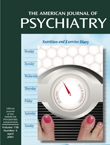Education of patients and their families about recognition and treatment options for mood disorders has become an increasingly important endeavor. Data regarding low recognition rates of depression in primary care settings, low rates of treatment of depression when it is recognized, and inadequate treatment make depression awareness on the part of the public much more critical. More individuals with depression and families of depressed individuals are requesting information that will help them understand the disorder and treatments applied. Advocacy groups (including, among others, the National Depression and Manic Depression Association), pharmaceutical companies, patients, and professionals have all attempted to provide educational material for patients regarding mood disorders and treatment options.
The Antidepressant Sourcebook: A User’s Guide for Patients and Families is written for the public regarding depression. It is a paperback, and the cost is quite affordable. It includes an index and references to both scientific and lay publications and organizations that may be of assistance. There is also a list of antidepressants with brief annotations regarding their use and particular side effects.
There are 38 chapters in this book, which means that many of the chapters are only a few pages. Several of the chapters are peppered with examples of patients and the problems they experience with depression.
There are four major sections. The first, The Basics, has eight chapters discussing antidepressants, placebos, and depression. What to Say to the Doctor has nine chapters related to signs and symptoms, chronological history, previous treatment, genetic factors, and substance abuse. What to Expect has nine chapters related to which antidepressant is best, finding the right medicine and the right dose, blood levels, and how to stop an antidepressant. The final section, Warnings, has 12 chapters on drug interactions, side effects, pregnancy, relapses, and giving up. I have not mentioned all of the titles of all the chapters, but I think the general thrust of this book is to provide knowledge about depression that would be important for patients and their families to have.
The book is well written, and the chapters, although short, are to the point and, I think, quite useful. Some of the information here may be a bit too technical for some patients. Although we always feel we are writing in “person language” rather than “professional language,” there is a tendency for all of us who are in the mental health field to use terms that perhaps we best understand rather than terms that may be well understood by lay people. I don’t think this is a serious problem for this volume.
I personally think that the most useful aspects of this book relate to the listings of other source material references and helpful organizations. This information is often not included in books directed toward patients.
There is much here for patients to read. I think it is an important contribution and would recommend that it be high on the list of books recommended to patients and their families.

